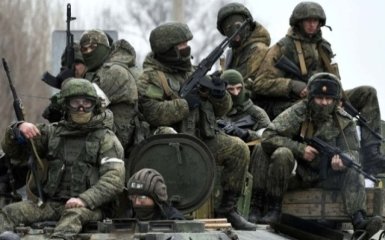The Defence Intelligence of Ukraine (DIU) informs that the aggressor state, Russia, is recruiting mercenaries in Syria to participate in combat operations against Ukraine.
Russia is recruiting mercenaries in Syria for the war against Ukraine
The training takes place on Syrian territory near Aleppo and Kuweires airfield. The first batch — about 1,000 mercenaries — is undergoing training, emphasising conducting combat operations in urban areas. After completing the training, the Syrian mercenaries will be sent to the Khmeimim air base and from there to the territory of the Russian Federation.
Upon arrival in Russia, they are issued Russian passports and then mobilised into the occupation army. The video shows some Syrians with Russian passports made in 5 days. Recruiting of the male population in Syria, where ruin and impoverishment reign, in particular, because Russia participates in the war on the territory of the Arab republic, is carried out by Moscow through travel companies.
Syrians are first promised jobs as security guards at oil refining facilities in Yakutia and then lured to a "higher-paying job in Buryatia."
In Ulan-Ude, passported mercenaries await mobilisation into the 5th Separate Guards Tank Brigade of the Armed Forces of the Russian Federation (military unit 46108) and further participation in hostilities in Ukraine. Recruiting Syrians for the war shows the deterioration of the moral and psychological state of the Russian occupying forces due to large-scale losses and the need to replenish them for further "meat assaults".
How the Kremlin replenishes its army
The Russian BBC service investigation showed that from September 2023, the Russian military stopped recruiting prisoners on short-term contracts.
Prisoners are currently offered standardised (long-term) military service contracts, which involve agreeing to serve in the military until the end of the partial mobilisation order in September 2022.
According to British intelligence, short-term prisoner contracts have caused some public controversy in Russia, particularly over the recidivism of returning prisoners and the prisoners' short service compared to indefinitely mobilised reservists.
It is very likely that the short-term recruitment of prisoners was a response to problems with recruitment into the army at the beginning of the conflict. In 2023, the Russian state will most likely turn to regular contract recruitment as the main source of new military personnel, the British Ministry of Defense notes.




